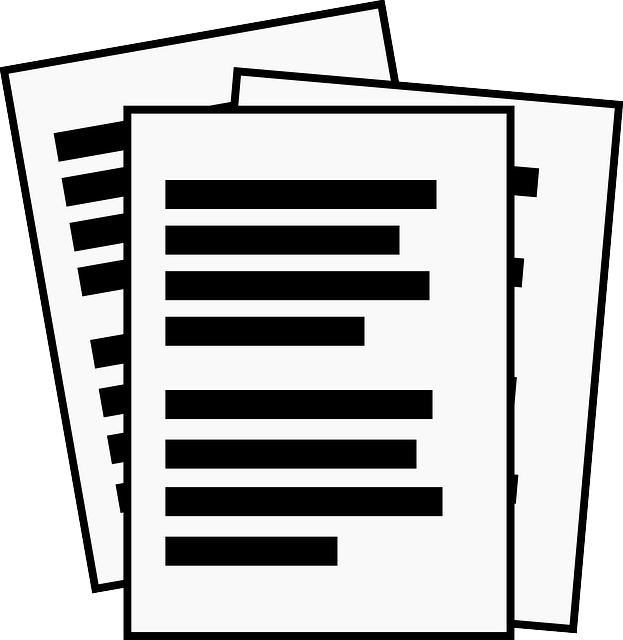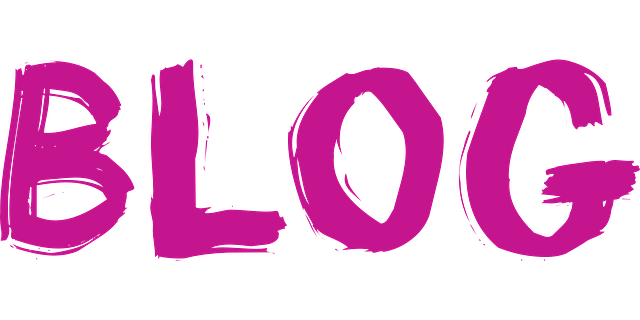Translation services for UK Public Health Reports are indispensable for effective communication and regulatory compliance in a dynamic landscape. Professional translators bridge linguistic gaps, ensuring complex reports with epidemiological data and disease prevention guidelines are accurately conveyed to diverse stakeholders. By combining medical expertise with cultural sensitivity, these services maintain document integrity, facilitate informed decision-making, and minimize errors that could hinder critical public health responses. As the UK's population becomes more diverse, seamless translation is key for reaching all communities and enhancing health outcomes. Advanced technologies like Machine Translation powered by AI further improve efficiency and accuracy, positioning translation services as a game-changer in global health collaborations.
In the dynamic landscape of healthcare, effective communication transcends linguistic barriers. Accurate translation of public health reports is not just an option—it’s a regulatory requirement for seamless UK compliance. This article explores the profound impact of high-quality translation services on navigating complex UK health regulations. We delve into best practices, emerging technologies, and case studies demonstrating successful translations in action. Discover how these strategies ensure quality, consistency, and effective communication within the UK public health sector.
- Understanding the Significance of Accurate Translation in Public Health
- Navigating Regulatory Requirements for UK Health Reports
- The Impact of Seamless Translation Services
- Key Considerations when Choosing Translation Providers
- Best Practices for Effective Public Health Communication
- Case Studies: Successful Translations in Action
- Emerging Technologies in Medical Language Translation
- Ensuring Quality and Consistency in Report Translation
- Future Prospects: Translating for a Changing Healthcare Landscape
Understanding the Significance of Accurate Translation in Public Health

In the realm of public health, accurate communication is a vital tool to ensure effective regulatory compliance across the UK. This is where translation services for UK public health reports play a crucial role. With diverse linguistic needs and a complex web of regulations, ensuring that these reports are translated seamlessly and precisely is essential. Any errors or miscommunications can lead to significant consequences, affecting the overall public health response and potentially causing harm.
Public health reports often contain intricate information, from epidemiological data to guidelines on disease prevention. These documents must be translated with a deep understanding of medical terminology and cultural nuances to maintain their integrity. Professional translation services specialize in this field, employing linguists who are not only proficient in multiple languages but also have expertise in public health. This guarantees that the translated reports accurately convey critical messages, enabling healthcare professionals and regulatory bodies across the UK to make informed decisions based on reliable data.
Navigating Regulatory Requirements for UK Health Reports

Navigating the complex landscape of UK regulatory compliance is a critical aspect of public health reporting. The country’s stringent standards demand precise and timely documentation, making translation services for UK Public Health Reports an indispensable tool. Accurate translations ensure that vital information reaches all relevant stakeholders, from healthcare professionals to regulatory bodies, without linguistic barriers.
These translation services play a pivotal role in harmonizing communication across diverse regions within the UK, where varying languages and dialects can pose challenges. Professional translators with expertise in medical terminology bridge these gaps, guaranteeing that health reports remain consistent, clear, and legally compliant. This seamless integration of translation ensures the integrity of public health data, facilitating efficient decision-making processes at both local and national levels.
The Impact of Seamless Translation Services

Seamless translation services play a pivotal role in ensuring effective communication and UK regulatory compliance for public health reports. With an ever-growing diverse population, accurate and timely translation is essential to convey critical health information to all communities. Traditional methods often lag in speed and may introduce errors, potentially leading to miscommunication and non-compliance with stringent UK regulations.
Translation services that are integrated into the reporting process enable rapid dissemination of translated reports, ensuring that all stakeholders, including healthcare professionals and the public, receive up-to-date, culturally sensitive information. This seamless approach facilitates better understanding, fosters trust in public health initiatives, and ultimately contributes to improved health outcomes across the UK.
Key Considerations when Choosing Translation Providers

When selecting translation services for UK public health reports, several key considerations come into play to ensure seamless regulatory compliance. First and foremost, the provider must possess a deep understanding of both the source and target languages, as well as the specific terminology used in public health documentation. This ensures that technical and medical terms are accurately translated, maintaining the integrity of data and information.
Another critical aspect is the vendor’s expertise in handling regulatory documents. They should have experience translating reports for various UK health authorities and be familiar with the necessary formatting and style guidelines. Reputable translation services will also adhere to quality assurance standards, employing qualified translators and implementing rigorous review processes to minimize errors and ensure accuracy.
Best Practices for Effective Public Health Communication

In ensuring seamless UK regulatory compliance, effective communication is paramount, especially when translating public health reports. High-quality translation services should be at the forefront of any strategy to disseminate critical public health information. The goal is to convey complex data and guidelines accurately while maintaining clarity for all stakeholders, from healthcare professionals to the general public. Professional translators with expertise in medical terminology and cultural nuances are essential. They can bridge the gap between technical language and everyday understanding.
Best practices include utilizing translation memory tools to preserve consistency across documents, ensuring terminological accuracy through standardized glossaries, and involving subject matter experts for quality control. Additionally, keeping the tone and style adapted to the target audience is crucial. For instance, communication aimed at healthcare providers may require a more technical approach, while materials for the general public should be accessible and easily comprehensible. Effective public health communication through translation services ultimately strengthens the UK’s response to health crises, promoting better outcomes for all.
Case Studies: Successful Translations in Action

When it comes to translation services for UK Public Health Reports, case studies offer tangible proof of successful navigation through regulatory compliance complexities. Take, for example, a recent project where a multinational pharmaceutical company required precise translations of their clinical trial reports for approval by the Medicines and Healthcare products Regulatory Agency (MHRA). By engaging specialist translators with in-depth medical knowledge, the report was not only translated accurately but also preserved its scientific integrity.
This seamless process highlighted the importance of expert translation in ensuring regulatory bodies accept foreign data without compromising safety or efficacy standards. Similarly, a local authority’s initiative to translate public health surveillance data for diverse communities demonstrated improved community engagement and access to essential services. These real-world examples underscore the value of professional translation in facilitating effective communication and UK regulatory compliance across diverse healthcare contexts.
Emerging Technologies in Medical Language Translation

The field of medical language translation is constantly evolving, driven by advancements in technology and a growing need for seamless communication in healthcare. For UK public health reports, emerging technologies are revolutionizing how these documents are translated, ensuring regulatory compliance across the nation. Machine Translation (MT) platforms, powered by Artificial Intelligence (AI), have made significant strides in recent years. These tools can rapidly translate large volumes of text while maintaining accuracy and context, which is particularly beneficial for technical reports.
One of the key advantages of these new translation services is their ability to handle specialized medical terminology accurately. By leveraging vast linguistic databases and neural machine translation models, they can produce high-quality translations for UK public health documents, ensuring consistent messaging in both clinical and regulatory settings. This not only streamlines reporting processes but also facilitates international collaboration, allowing healthcare professionals and researchers to share insights and best practices effectively.
Ensuring Quality and Consistency in Report Translation

When translating public health reports for regulatory compliance in the UK, maintaining quality and consistency is paramount. Accurate translations must convey critical information accurately while adhering to local terminology standards and regulatory requirements. This involves more than just word-for-word substitutions; it requires a deep understanding of both the source and target languages and cultures.
Reputable translation services for UK public health reports employ professional translators with specialized knowledge in medical terminology and public health protocols. They utilize advanced translation tools, such as machine translation software coupled with human review, to ensure coherence across lengthy documents. Regular quality assurance checks at each stage of the translation process further guarantee accuracy, consistency, and fluency in the final product, thereby facilitating seamless regulatory compliance.
Future Prospects: Translating for a Changing Healthcare Landscape

As the healthcare landscape evolves, so too does the need for effective and precise communication across borders. The demand for translation services for UK public health reports is set to grow as global collaborations in research and policy become increasingly vital. With advancements in medicine and technology, healthcare professionals must navigate a diverse network of international partners, patients, and regulatory bodies.
Translation plays a crucial role in ensuring that public health data remains accessible, understandable, and compliant with varying legal standards worldwide. By leveraging advanced translation technologies and expertise, service providers can keep pace with the changing healthcare landscape, facilitating seamless communication and collaboration at every stage of research, reporting, and policy implementation.
Accurate translation of public health reports is vital for seamless UK regulatory compliance, ensuring effective communication and consistent application of healthcare standards. By leveraging advanced translation services, the UK can navigate complex regulatory requirements, enhance cross-border collaboration, and foster a more inclusive healthcare environment. As the field advances with emerging technologies, prioritizing quality, consistency, and best practices will be key to achieving optimal results in translating medical reports for a dynamic healthcare landscape. Translation services for UK Public Health Reports play a crucial role in upholding public health standards and improving patient outcomes across borders.
